Statements

Climate change is reshaping our world, intensifying threats to our health, rights or even life and driving millions to move in search of safety and dignity. Rising seas, melting glaciers and drying lands compel people to leave their homes, while...
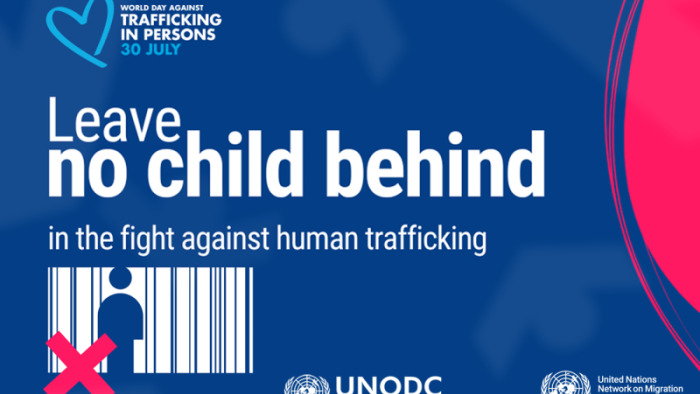
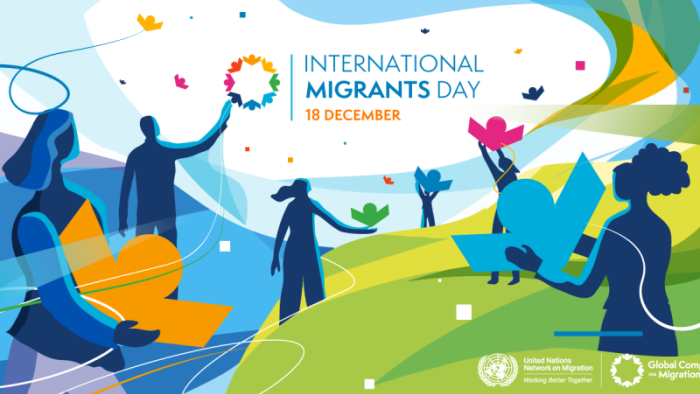
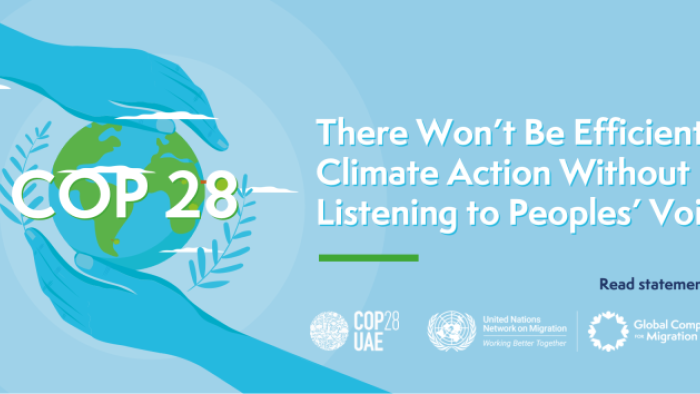
The United Nations Network on Migration calls upon Member States to deliver on their commitments made in the Global Compact for Safe, Orderly and Regular Migration (GCM) to safeguard the human rights of migrants and their communities, protecting and enabling their freedom to make safe and informed decisions whether to stay or go when confronted by the risk and impacts of disasters, climate change and environmental degradation.

When a boat crammed with over 500 women, men, and children sank off the coast of the Italian island of Lampedusa ten years ago, the world said “never again.” Today, on the 10th anniversary of that shipwreck, we have not lived up to that commitment; 2023 has recorded the deadliest first quarter since 2017 and by 2 October, 2,517 people were accounted as dead or missing this year alone in the Central Mediterranean.
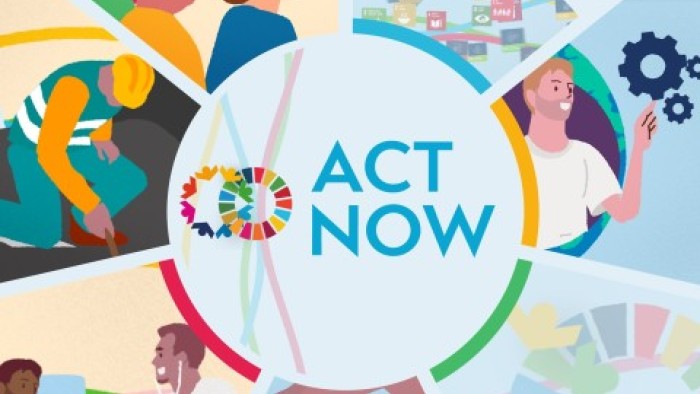
The UN Network on Migration urges Member States to recognize migrants’ and diasporas’ vital contributions to the sustainable development of all societies and address the all too frequent instances in which migrants’ rights are insufficiently protected, respected and fulfilled.

We must step up our efforts towards increasing the socio-economic impacts of remittances by reducing the transfer costs and fostering the access to and use of digital solutions for faster, safer and cheaper remittances to ensure the financial and digital inclusion of all migrants and their families back home.

To mark this year’s International Day for the Elimination of Racial Discrimination, the United Nations Network on Migration calls on Member States to step up efforts to combat racism and racial discrimination in the context of migration governance.

Geneva - The adverse effects of climate change and environmental degradation are increasingly driving human mobility the world over, particularly in countries with high exposure and low adaptive capacity. While most climate-related mobility currently occurs within countries, desperation and deteriorating environments can also compel people to seek…

Migrants make up a considerable proportion of the detected victims of trafficking in persons around the world, accounting for 65% of victims identified in Western and Southern Europe, 60% in the Middle East, 55% in East Asia and the Pacific, 50% in Central and South-Eastern Europe, and 25% in North America. In recent times, the internet has increasingly been used to advertise false jobs, recruit and exploit these victims.
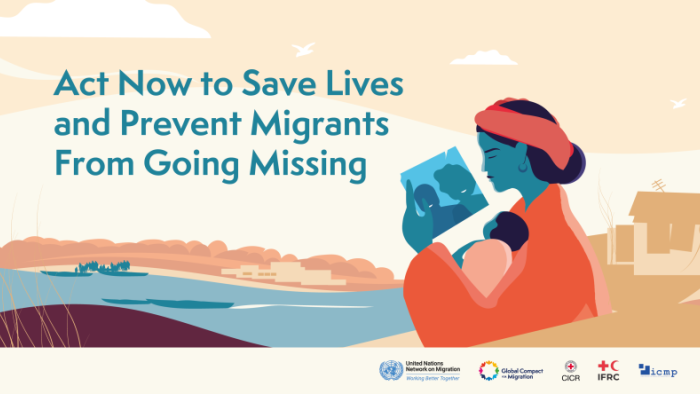
Thousands of migrants go missing or die each year along migration routes. In 2018, United Nations Member States committed to “save lives and establish coordinated international efforts on missing migrants”

Geneva - On the occasion of International Migrants Day, the United Nations Network on Migration calls on the international community to strengthen collective action to protect migrants’ lives, reduce their vulnerabilities and maximize the benefits of safe, orderly and regular migration.


On the occasion of the 26th United Nations Framework Convention on Climate Change Conference of the Parties (COP26), the UN Network on Migration urges States to strengthen their commitments and address the reality that people increasingly migrate to adapt to the adverse effects of climate change.



At this year’s High-Level Political Forum (HLPF) the United Nations Network on Migration calls on all States to harness the contributions of migrants as enablers of sustainable development and enhance cooperation to ensure safe, orderly and regular migration.

On the occasion of the International Day of Family Remittances (IDFR), the United Nations Network on Migration recognizes the crucial contribution that migrant workers and their families make, especially through their remittances, to the social and economic development of their communities and countries of origin.


In marking the International Day for the Elimination of Racial Discrimination, the United Nations Network on Migration calls on States to scale up efforts to condemn racial discrimination and to pursue, by all appropriate means, the elimination of all forms of discrimination.

As vaccine roll-outs are bringing back hope that the end of the pandemic might be in sight, too many migrants remain excluded from national deployment and vaccination plans (NDVPs). Although the number of vaccinations globally has overtaken reported COVID-19 infections, only a quarter of NDVPs submitted to the COVAX Facility include migrants.

COVID-19 has shone a spotlight on the significant contribution of migrants to societies they live in and the role they play in pandemic response and recovery efforts. It has shown us, too, how migrants can be particularly vulnerable to the devastating impacts of the virus. By reducing opportunities for migrant workers, including their ability to se…

Today, the United Nations Secretary-General has called on Member States and all partners to redouble efforts in implementing the Global Compact for Safe, Orderly and Regular Migration (GCM) and protect the human rights of all migrants, regardless of status, including while responding to COVID-19.


The UN Network on Migration salutes all actors providing vital protection, monitoring, advocacy, information and support to and in collaboration with migrants during the COVID-19 pandemic. Civil society organizations, migrant and diaspora associations, workers and employers organizations, national human rights institutions, youth and women-led organizations, local authorities and communities...

COVID-19 and its impacts have had far-reaching consequences and exacerbated inequalities. For the 800 million people reliant on migrant family members sending money home – money that many can no longer receive – COVID-19 is more than a deadly virus; it constitutes a devastating and immediate blow to their development , imperiling their access to health, education, housing and nutrition.


Today, the Secretary-General has urged that global efforts to manage the COVID-19 crisis will depend upon public health responses and a comprehensive recovery that include all people. The United Nations Network on Migration welcomes the Secretary-General’s policy guidance on COVID-19 and People on the Move, which provides key lessons from the pande…

The United Nations Network on Migration is concerned by reports of States in many regions using forced return of migrants as a measure in response to COVID-19. The Network calls on States to suspend forced returns during the pandemic, in order to protect the health of migrants and communities, and uphold the human rights of all migrants, regardless…

As the world confronts the COVID-19 pandemic, the United Nations Network on Migration salutes the immense efforts to date to combat this crisis and urges that all – including migrants regardless of migratory status – are included in efforts to mitigate and roll back this illness’s impact. To that end, migrants must be seen as both potential victims and as an integral part of any effective public health response.


Joint Statement by the United Nations Network on Migration-Annual Meeting/International Migrants Day






On occasion of the International Day of Family Remittances (IDFR), proclaimed by the General Assembly in June 2018, the United Nations Migration Network (UNMN) joins the global community in recognizing the crucial contribution of migrant workers and their families to the implementation of the 2030 Agenda for Sustainable Development.
*References to Kosovo shall be understood to be in the context of United Nations Security Council resolution 1244 (1999).
Newsletter
Subscribe to our newsletter.
